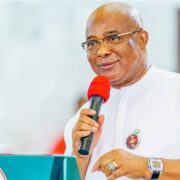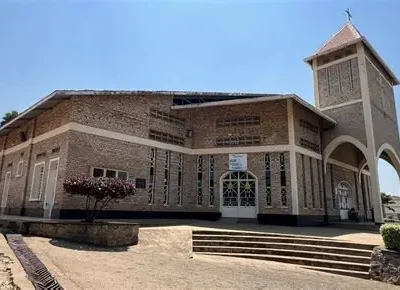ABUJA — Speaker of the House of Representatives, Abbas Tajudeen, has raised the alarm over Nigeria’s surging debt profile, warning that it has surpassed the country’s legal threshold and now poses a grave threat to fiscal sustainability.
Speaking on Monday at the opening of the 11th Annual Conference and General Assembly of the West Africa Association of Public Accounts Committees (WAAPAC) in Abuja, Abbas revealed that Nigeria’s total public debt rose to N149.39 trillion (about US$97 billion) in the first quarter of 2025 — a steep increase from N121.7 trillion recorded the previous year.
He noted that the country’s debt-to-GDP ratio has spiked to 52 percent, far above the statutory ceiling of 40 percent set by law.
“As at the first quarter of 2025, Nigeria’s total public debt stood at N149.39 trillion, equivalent to about US$97 billion. This represents a sharp rise from N121.7 trillion the previous year. Even more concerning is the debt-to-GDP ratio, which now stands at roughly 52 percent, well above the statutory ceiling of 40 percent,” Abbas said.
Describing the situation as a clear strain on fiscal stability, the Speaker called for tighter oversight, transparent borrowing practices, and reforms to ensure loans deliver measurable economic and social benefits.
He cautioned that many African nations already spend more on debt servicing than on healthcare and other essential services — a trap Nigeria must avoid.
To tackle the risks, Abbas announced plans to establish a West African Parliamentary Debt Oversight Framework under WAAPAC, which will harmonise debt reporting across the sub-region, set transparency standards, and empower parliaments with tools to scrutinise borrowing.
He also disclosed a regional capacity-building programme aimed at strengthening debt sustainability analysis and fiscal risk assessment.
Abbas stressed that borrowing should be targeted at infrastructure, healthcare, education, and industries that create jobs and reduce poverty, warning that reckless, consumption-driven, or corruption-fueled debt must be firmly rejected.
Reaffirming the 10th House’s commitment to accountability, he said the chamber’s Open Parliament policy will subject major borrowing proposals to public hearings, while simplified debt reports will be made available to citizens.




















Comments